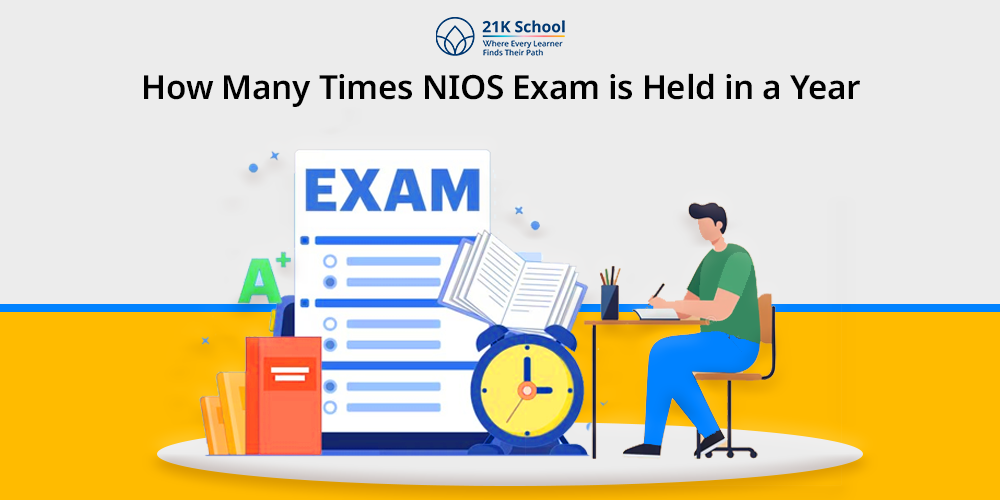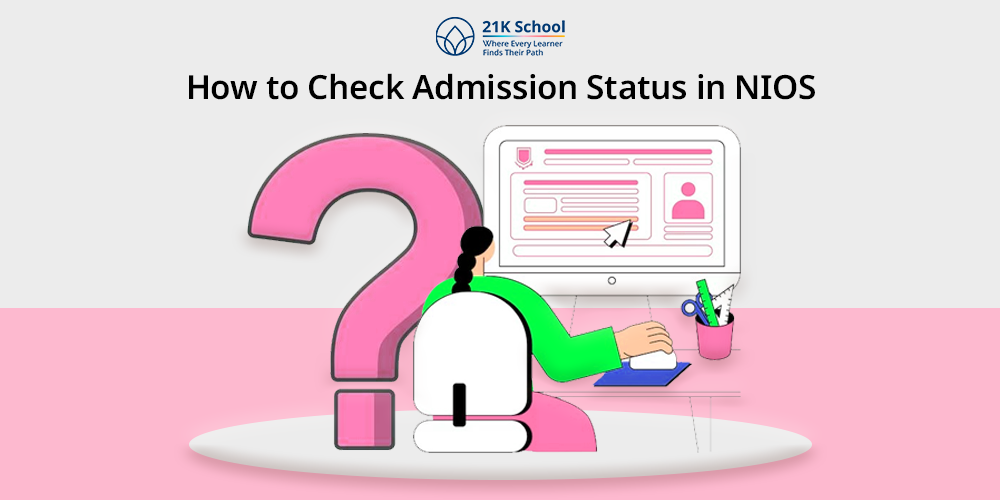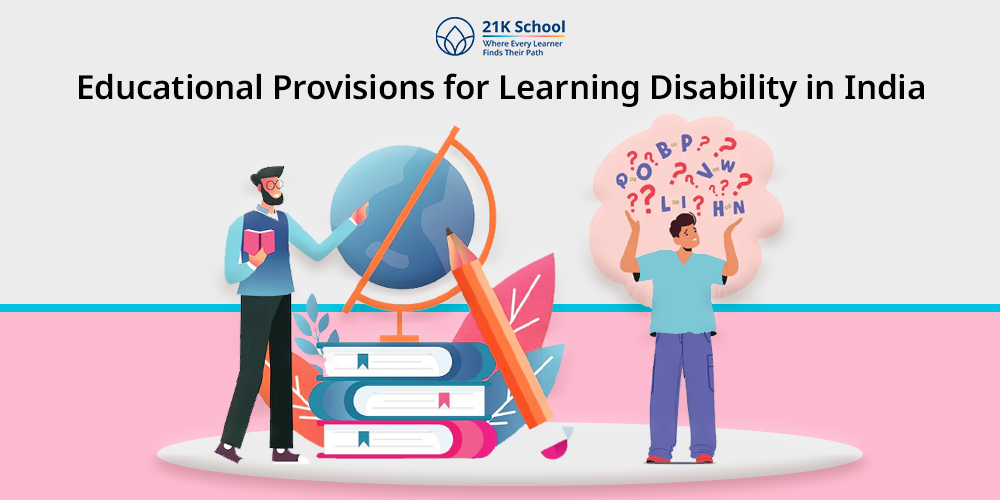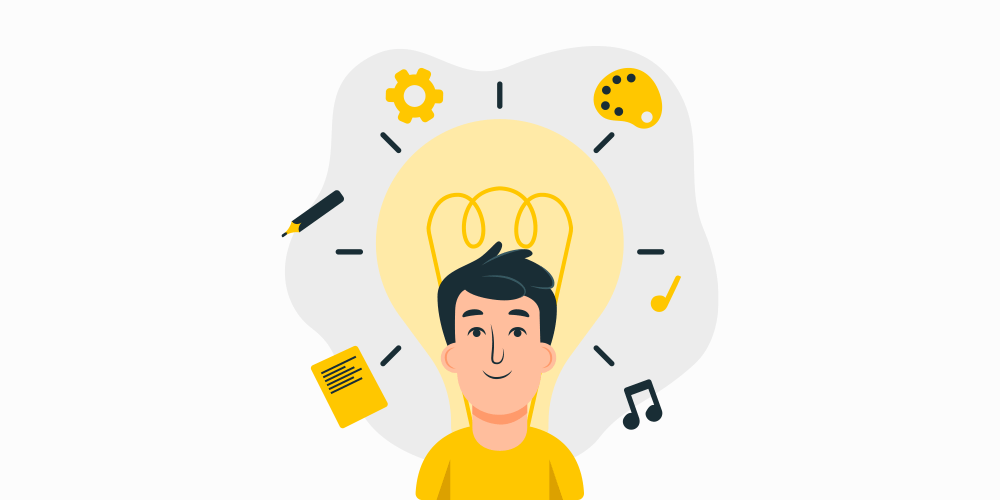
Have you ever asked yourself why some learners are easily distinguished in a classroom, not by just their grades but as well as in their dress code, their posture, and their attitude towards matters in life?
This is the area where personality development plays its role.
It is necessary to emphasise that all information which was received in schools or universities does not play an active role in the formation of behaviour, expectations, and relations with other people.
Therefore, one has to ask what we understand by ‘personality development’ and why it is important for students.
Now, in this blog, we will talk about the importance of personality development and provide 10 practical tips by which students can develop personalities.
Contents
What is Personality Development?
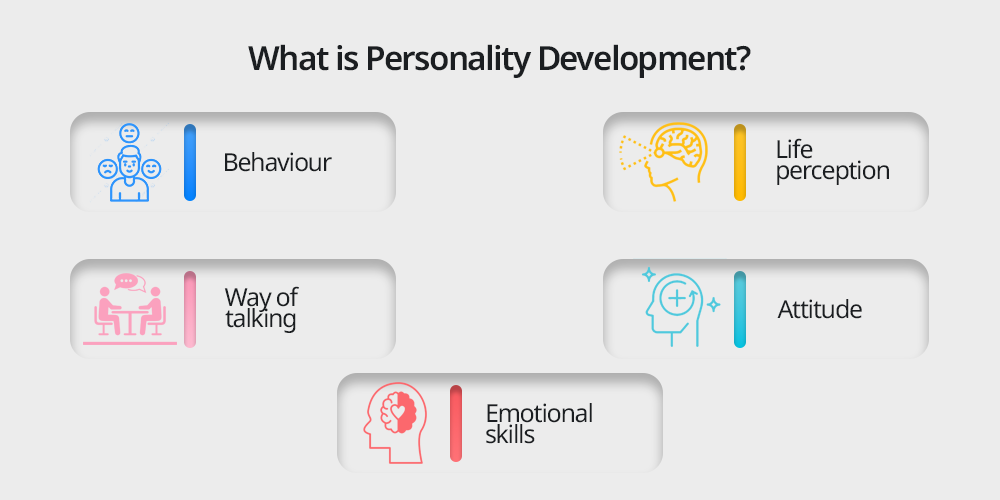
Personality development includes things such as behaviour, way of talking, life perception, attitude, and emotional skills, all of which contribute to personal growth.
It is defined as the process of enhancing some qualities that are both innovative and relational and affect mechanical and organic impressions and how people treat you.
Therefore, personality development for students means something broader than the physical aspect of walking, talking, or dressing well though these faculties are well exercised in this regard, it should be a noble social competence that shapes a student’s life and career.
How Does Personality Development Benefit Students?
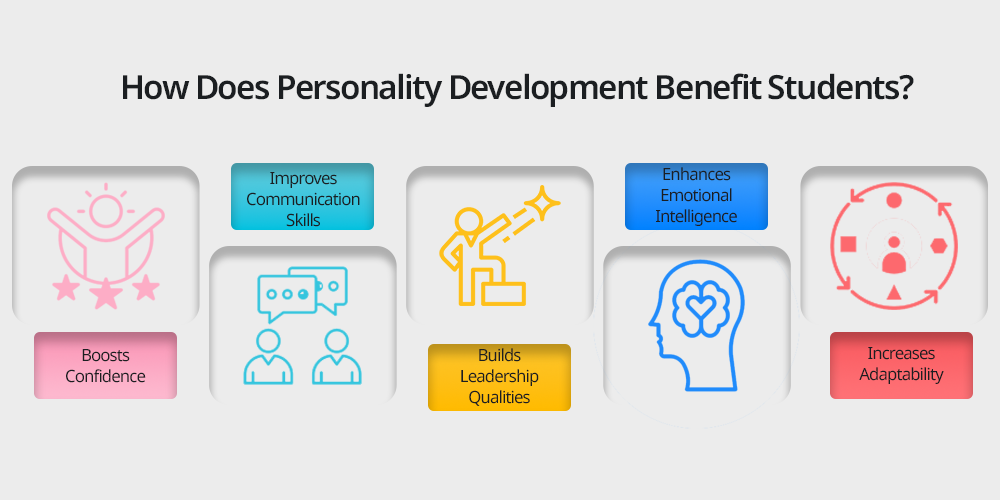
Indeed, personality development is among the most relevant values that can influence students’ effectiveness along with numerous characteristics of academic achievement.
Here’s why:
- Boosts Confidence: It enables a student to be confident of his ability to handle problems that are coming across him.
- Improves Communication Skills: This category helps in the enhancement of correct interpersonal communication skills, an aspect that is vital in learning, as well as social life.
- Builds Leadership Qualities: Leadership abilities are taught to those students who have well–developed personalities, and the knowledge of leadership and ways of leadership is gained by them.
Also read How to Develop Leadership Skills in Students to learn more about leadership qualities. - Enhances Emotional Intelligence: Personality development allows students to understand and manage their emotions, fostering better relationships.
- Increases Adaptability: They also make the students to be more vulnerable and easily manageable as well as flexible, these being realities of life.
10 Personality Development Tips for Students
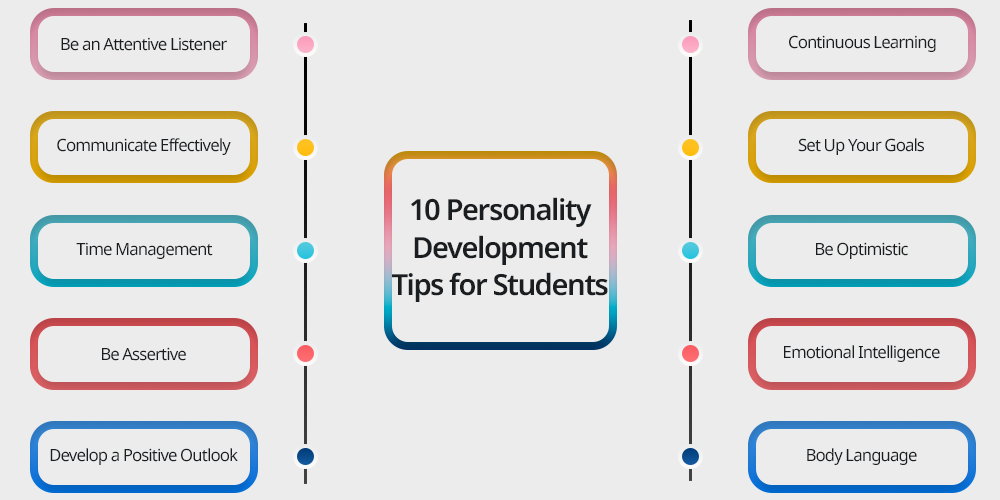
1. Be an Attentive Listener
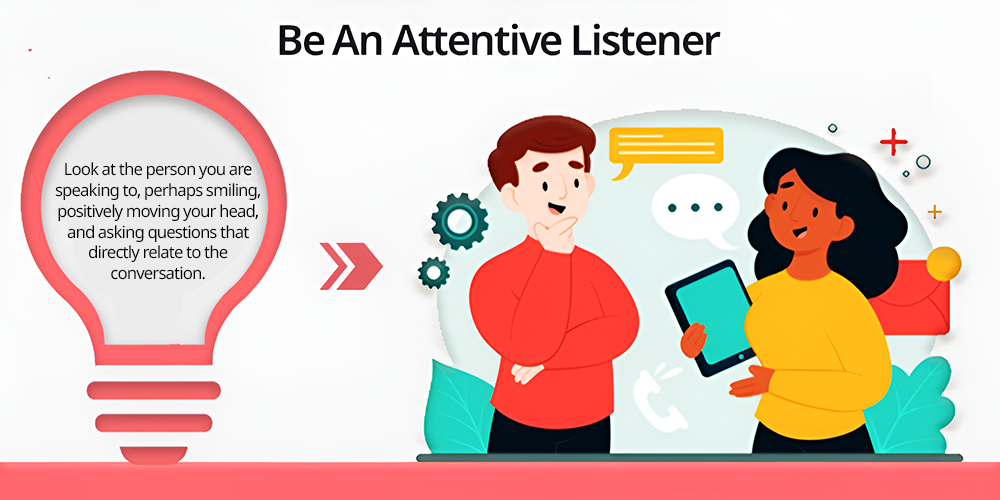
Listening skills are a part of people’s lives and constitute one of the most important skills, although it gets very little consideration.
An attentive listener can listen to everything important more effectively while on the other hand developing better relationships through interacting with other peers and teachers.
It is not only concerned with words but a message which helps in responding intelligently.
Tip: Execute this by ensuring you look at the person you are speaking to, perhaps smiling, positively moving your head, and asking questions that directly relate to the conversation.
2. Communicate Effectively
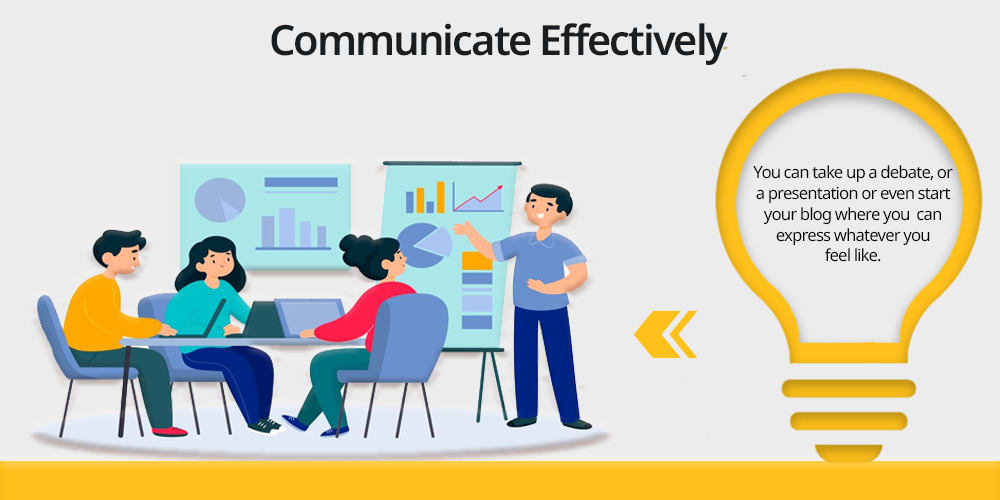
A majority of people rely on communication to foster good interpersonal relations and for passing information.
In the case of students, this is a way of speaking confidently in a class, going ahead and speaking one’s mind without having to think twice about what to say or how to say it.
Tip: You can take up a debate, or a presentation or even start your blog where you do not have to hold yourself much and can express whatever you feel like.
3. Time Management
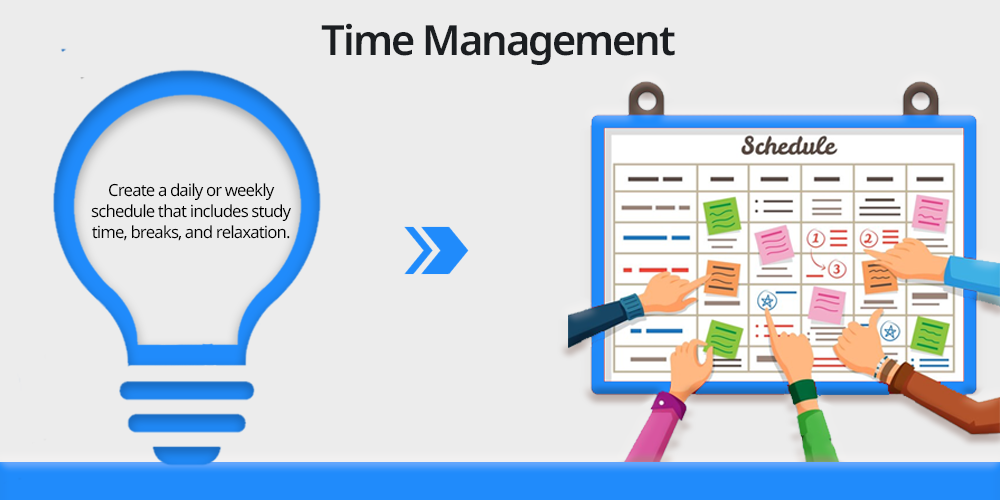
The most vital of all the life skills, that any learner should be in a position to master, is How to improve time management .
Thus, depending on this way, students might be able to reduce their problems by prioritising the tasks; avoid cramming, and even be able to incorporate breaks.
Tip: Create a daily or weekly schedule that includes study time, breaks, and relaxation. Use apps or planners to keep track of assignments and deadlines.
4. Be Assertive
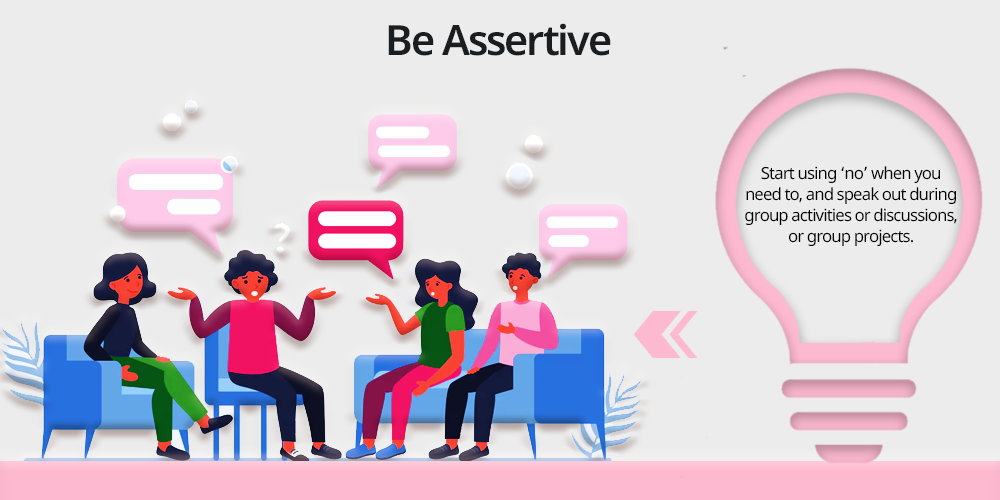
Assertiveness is the act of claiming or promoting one’s agenda in a way that makes it possible for the person to get what he or she wants while not hurting any other person.
More so for the learners, assertiveness helps them to deal with pressure from other students, manage interpersonal relationships, and assertively respond without being aggressive.
Tip: Start using ‘no’ when you need to, and speak out during group activities or discussions, or group projects.
5. Develop a Positive Outlook
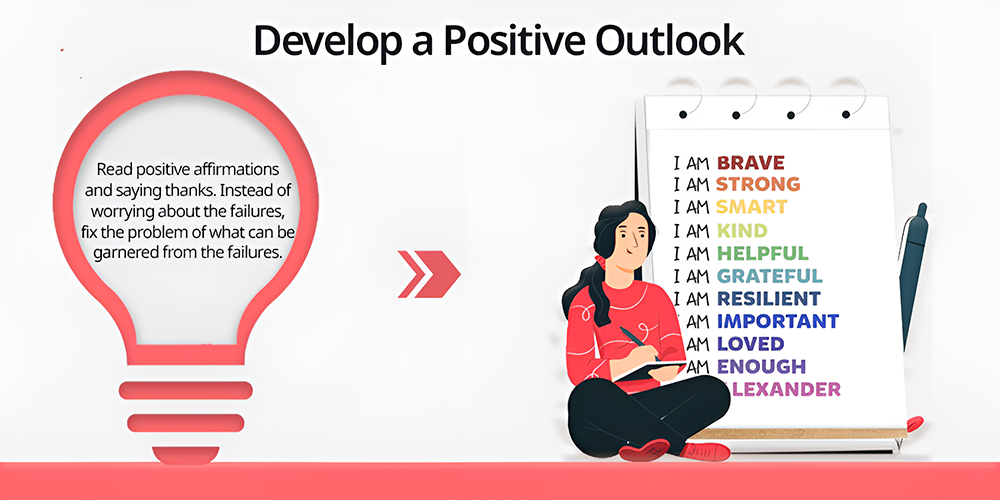
The first and most important category that leads to opening the door to success is attitude. Look at the positive impacts of life events.
Being positive improves one’s psychological state physically and mentally, working ability, and improves on their ability to reason as compared to a pessimist.
Tip: Some of the tips that we use for self-reflection are in the morning reading positive affirmations and saying thanks. Instead of worrying about the failures, fix the problem of what can be garnered from the failures.
6. Continuous Learning
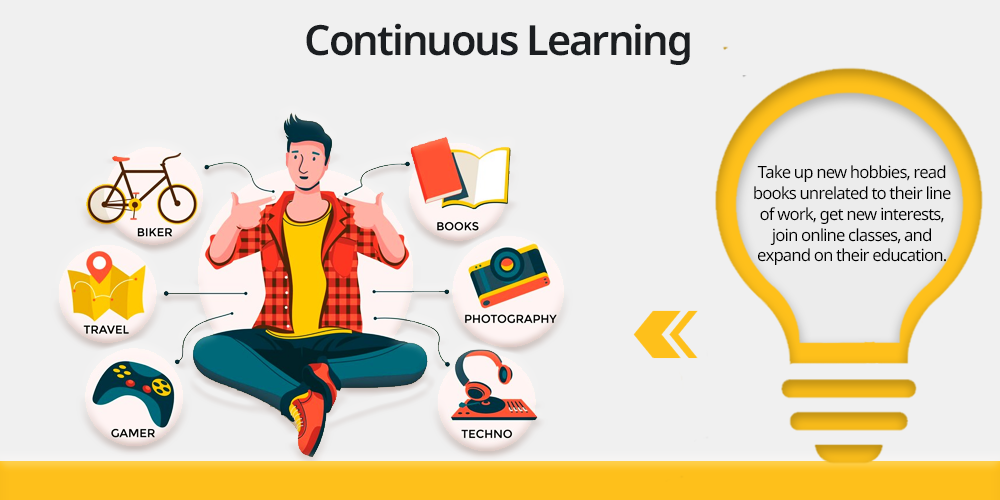
Students not only are taught within school hours. In learning, the student should have the attitude of lifelong learning not only in schools about academic subjects but also they can learn in their interest.
By doing so, they become more flexible, curious, and knowledgeable persons.
Tip: Take up new hobbies, read books unrelated to their line of work, get new interests, join online classes, and expand on their education.
Read 7 Ways to Promote Lifelong Learning in Your Students
to understand the ways to make this your habits.
7. Set Up Your Goals
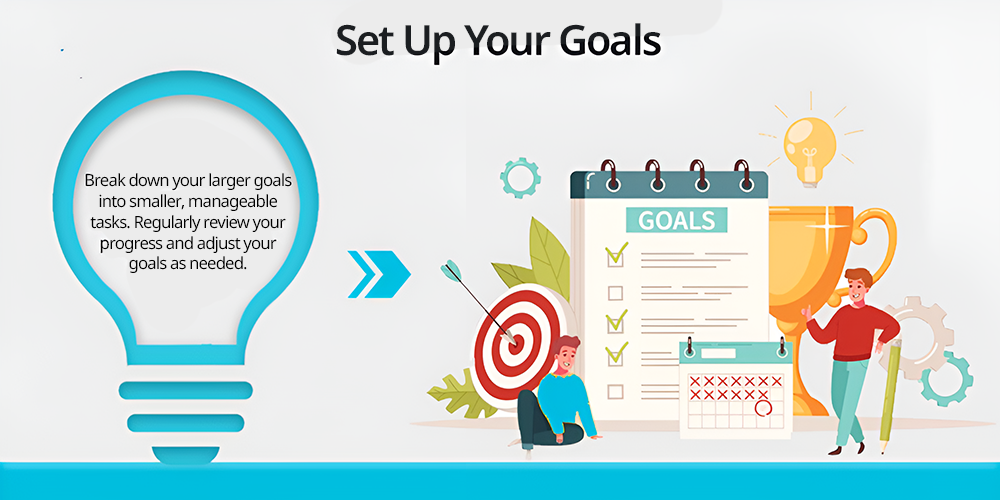
In this context, it is clear that the act of setting goals has therefore been listed among the best that can be used in personality improvement.
Their goals are oriented, specific, and realistic; therefore students who have set their goals will work hard, will be more motivated, and likely to perform as they have planned.
It gives directions and this is a tool whereby one may be in a position to decide on the correct thing to do in any given career or academic activity.
Tip: Break down your larger goals into smaller, manageable tasks. Regularly review your progress and adjust your goals as needed.
8. Be Optimistic
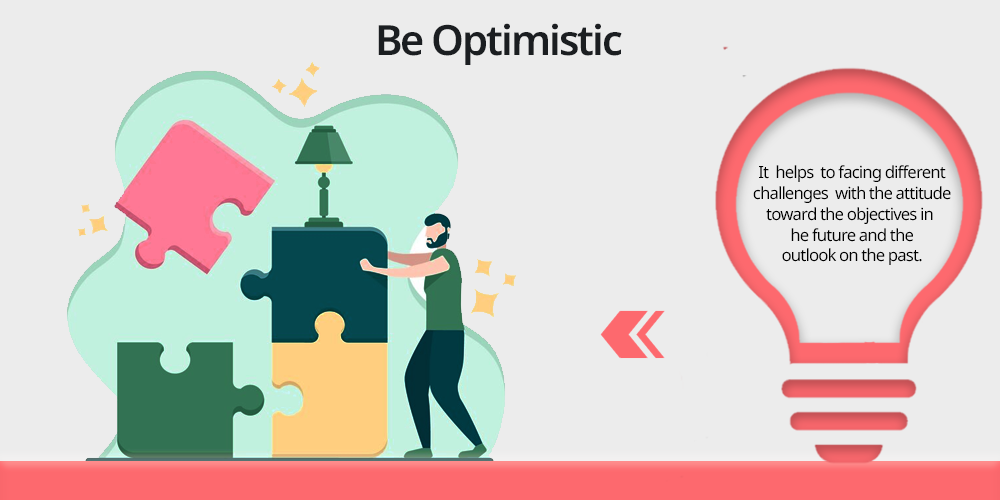
It shall thus be said that optimism is that the vice via which people can fully live life without ever considering the worst of it.
Optimism is the attitude that one can do something and things will be well no matter what.
It also helps the students in motivating each other especially if that particular part seems a little hard then they end up being the winners, all pride!
Tip: It also helps when it comes to facing different challenges present on the way, together with the attitude toward the objectives in the future and the outlook on the past.
9. Emotional Intelligence

It entails perception of feelings and control of inner emotions; skill or competence of the person to comprehend the feelings of others.
Scholars also find that when students have high emotional intelligence, they are successful in moderating their stress, social relationships, and management of conflicts.
However, it is important to note that EI is a critical part of personality development, and that improves the enhancement of academic performance and interpersonal relationships.
Tip: Ideally, everyone should spend some time each day thinking about why they feel a certain way as well as attempting to think about how others may also feel.
10. Body Language
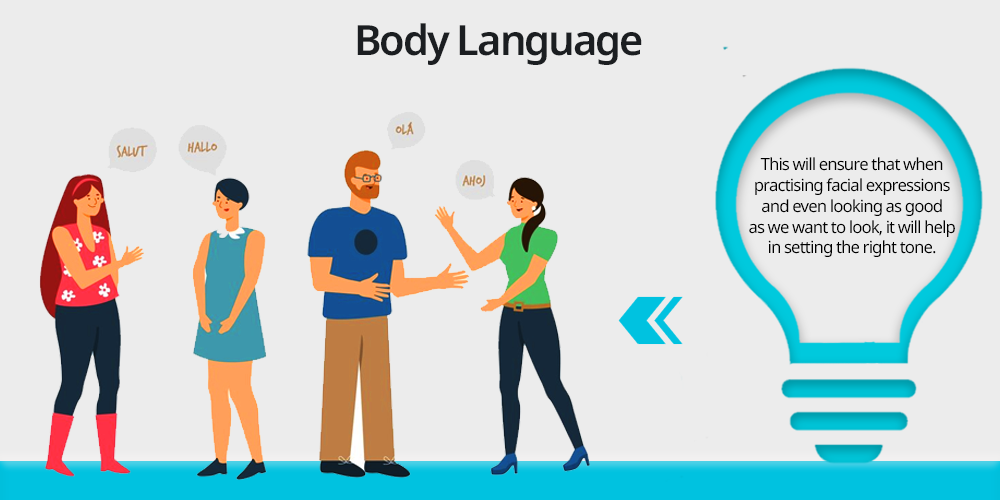
For several times, there is what people convey through their non-verbal cues as to what they say they are going through.
There are things like the position of the body, the distance that is between you and the other person, eye contact, and things like that which assist in judging the kind of attitude that the people have towards you.
Observing appropriate types of nonverbal communication may contribute to the development of the student in the aspects of voice use, and personal esteem, as well as creating the first impressions where needed.
Tip: It is advisable to ensure that one’s posture is good. This will ensure that when practising facial expressions and even looking as good as we want to look, it will help in setting the right tone.
Conclusion
Personality development is a lifelong journey; however, being able to maintain a strong foundation from the foundation age is well beneficial to the students.
When choosing the required qualities from the list, the students can improve in terms of studying and other skills like communication, time management, interpersonal, and emotional skills, and positive attitude.
Personality change cannot be viewed as the process by which one erases his/her personality; rather, it is the process of developing an improved personality.
In practice, it usually means making some small efforts day by day, and keeping up regularity, the gains coming afterwards.
So, are you ready to embark on your personality development journey? Start implementing these tips today and watch as you grow into a more confident, well-rounded individual.

